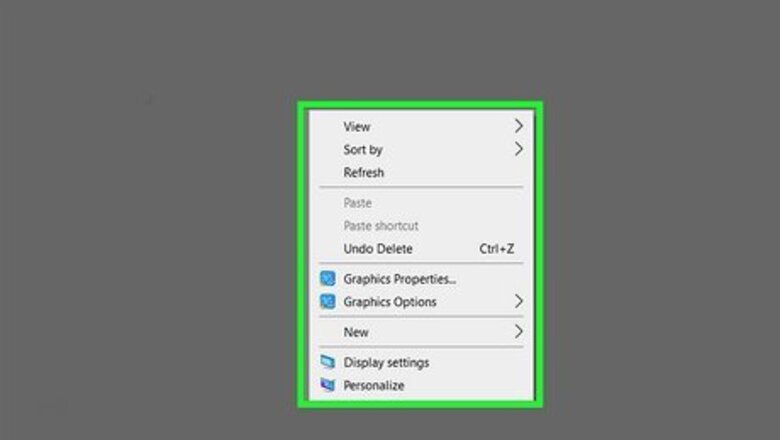
views
- Windows: Right-click the desktop and select "Display Settings." Find the screen resolution below or next to "Display resolution."
- Mac: Open "System Settings" and click "Display." Hover your mouse cursor over the icon highlighted in blue.
- Chromebook: Click the clock, click the gear icon, and then go to "Device" > "Display." Find the resolution under "Display Size."
Using Windows
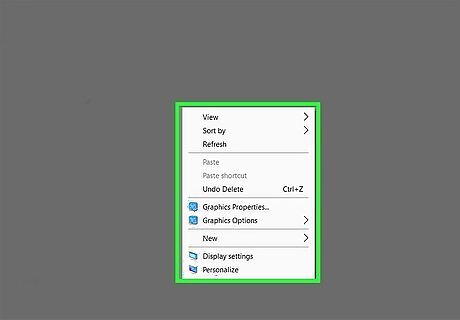
Right-click a blank area of your desktop. This can be anywhere that doesn't have an icon. A menu will expand.
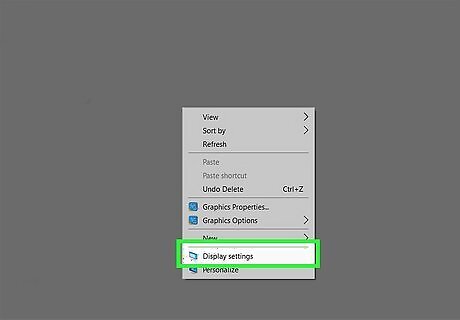
Click Display Settings. This opens the Display settings panel.
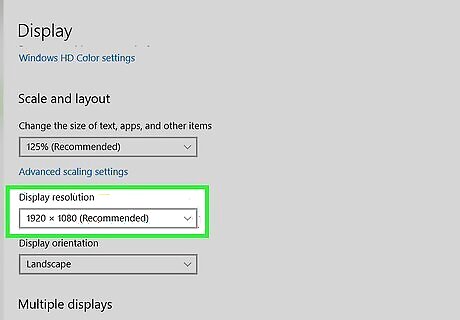
Find the resolution under or next to "Display resolution." The current resolution appears in this menu. If you see "(Recommended)" next to the resolution, you're using the highest possible resolution for your hardware. If you have more than one monitor, you will see both listed at the top of the right panel. Select the monitor you want to check. The options you see are those supported by both your monitor and video card. For example, if you have a 4K monitor but don't see the option to change your resolution to 4K (3840 x 2160), it's usually because it's not supported by your video card (or vice-versa).
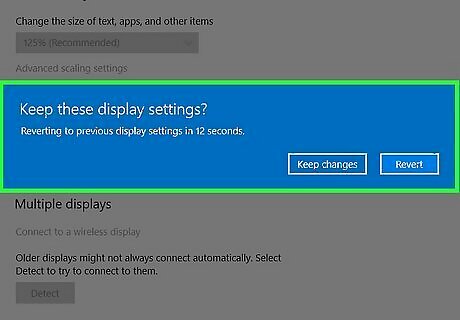
Select a different resolution from the menu (optional). If you are using a resolution other than the recommended one, select the Recommended option for best results. Switching to a resolution that isn't the recommended one may result in a blurry, stretched, or squished image. After selecting a new resolution, it will change immediately. You'll also see a pop-up message asking if you want to Keep changes or Revert to the previous setting. If the new resolution looks wrong, click Revert. If the screen goes dark after changing your settings, that resolution won't work with your display. After a few moments, Windows will revert to the previous resolution automatically to fix the problem.
Using a Mac
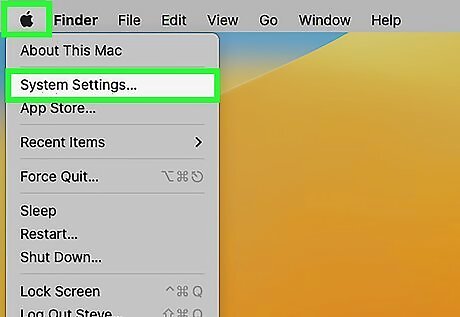
Click the Apple menu Mac Apple and select System Settings. This opens your Mac's settings.
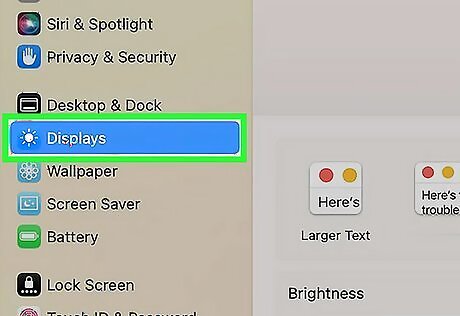
Click Display. It's on the menu bar to the left. You may need to screen down.
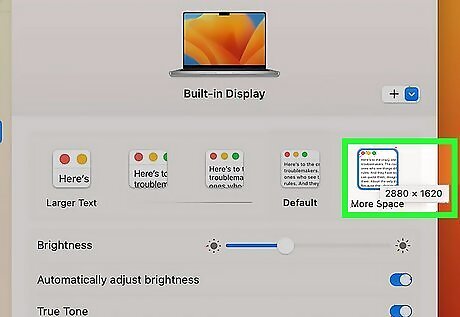
Hover over the icon highlighted in blue. There are five icons at the top of the page that display Mac buttons and text at different sizes, each representing a different display configuration. The blue highlighted icon is your current display configuration. When you hover the mouse cursor over it, you'll see your screen resolution in pixels in "Width x Height" format (i.e., 3840 x 2160). If you have more than one display connected, you can click which monitor you want to check in the image at the top of the page. To change your screen resolution, click one of the icons at the top of the page. The ones that have larger text represent smaller resolutions.
Using a Chromebook

Click the time. It's at the bottom-right corner of the screen.
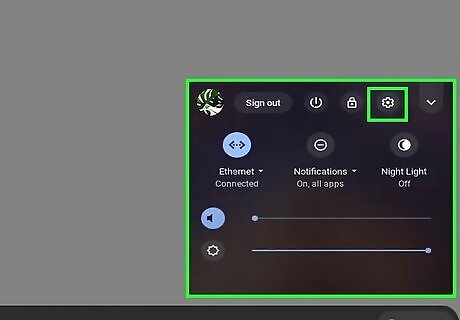
Click the gear icon on the menu. It's in the upper-right corner of the pop-up menu. This opens your Chromebook settings.
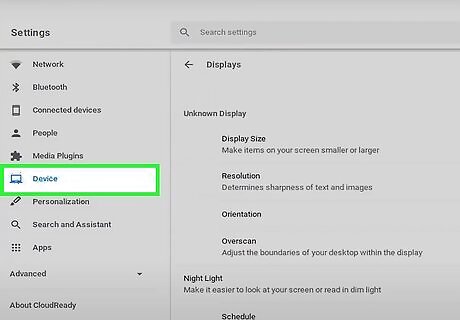
Click the Device tab. You'll see this tab in the left panel.
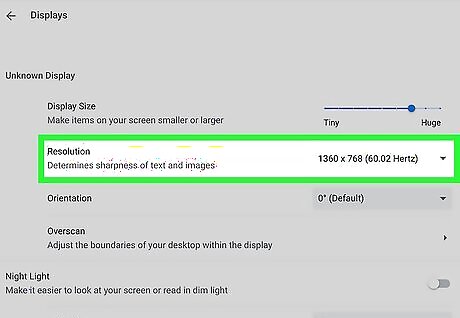
Find the resolution under "Display Size." There is some text under the bold text that reads "Display Size." You can find your resolution in "Width x Height" format next to "Looks Like" (i.e., Looks like 1900 x 1080). To change your display resolution, click and drag the slider bar next to "Display Size." Dragging it toward "Small" will increase your resolution and make the icons and text appear smaller. Dragging it toward large will decrease your resolution and make your icons and text appear larger.




















Comments
0 comment